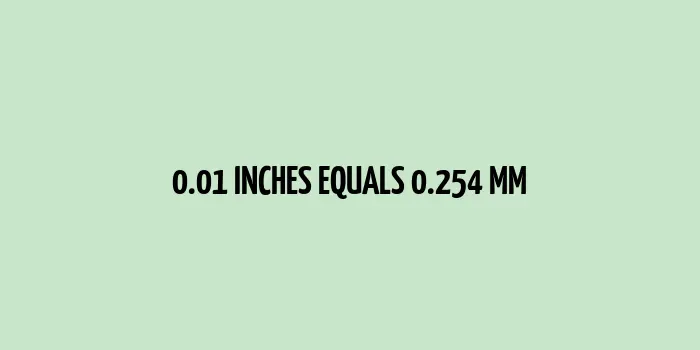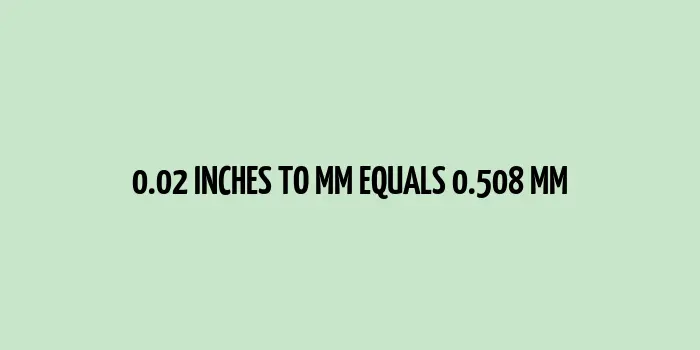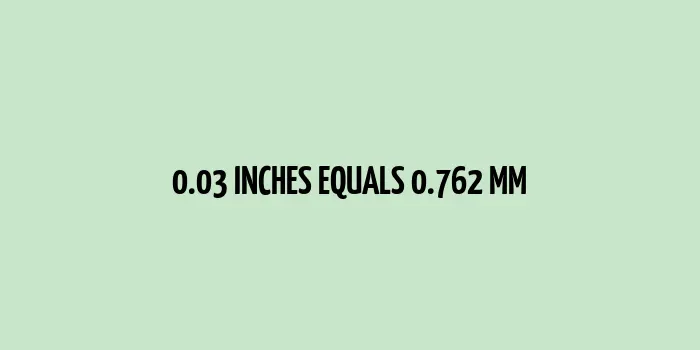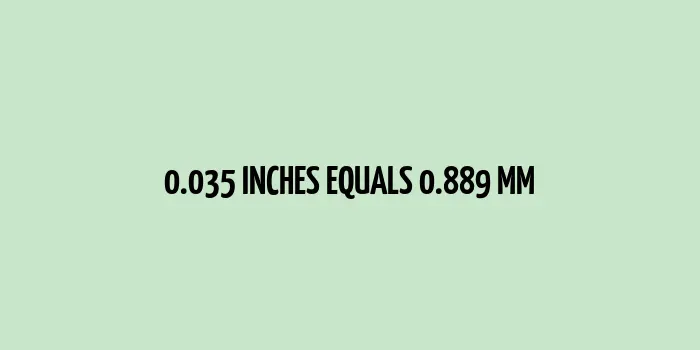0.625 inches to mm (Inches to Millimeters)
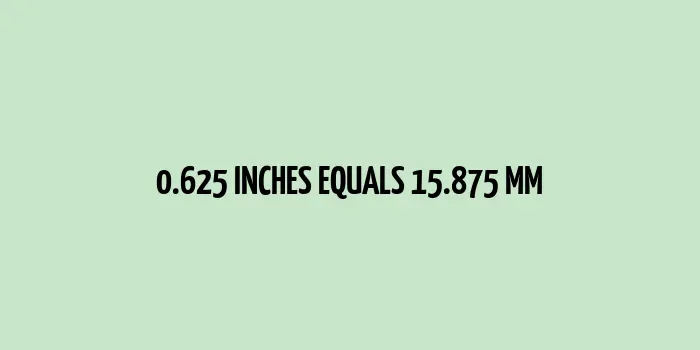
Here is how to easily convert 0.625 inches to mm
0.625 inches is equivalent to 15.875 millimeters. For many people dealing with measurements, especially in fields like engineering, manufacturing, or automotive industries, converting inches to millimeters is crucial. This article aims to provide a clear understanding of how to convert 0.625 inches to millimeters and why this conversion is essential.
One might wonder why this conversion is important. Well, different industries use varying units of measurement. For instance, while the United States primarily uses the Imperial system, many other countries rely on the Metric system, making conversions necessary for global collaboration.
What is 0.625 Inches in Millimeters?
When converting inches to millimeters, understanding the relationship between the two units is crucial. One inch is equal to 25.4 millimeters. Therefore, to convert 0.625 inches to millimeters, you multiply 0.625 by 25.4. The result is 15.875 millimeters.
Why is Accurate Measurement Important?
Inaccurate measurements can lead to significant issues in various fields. For example, in manufacturing, even a small error in measurement can result in parts that don’t fit correctly or machinery that doesn’t work as intended. According to a study, over 60% of engineering failures are due to measurement inaccuracies. Ensuring precise measurements not only improves quality but also helps in maintaining consistency across projects.
How Does This Conversion Affect Your Daily Life?
You might not realize it, but converting inches to millimeters can affect your daily life. For instance, let’s say you are purchasing a piece of furniture from a European store, and the dimensions are given in millimeters. Knowing how to convert these measurements allows you to ensure the furniture will fit in your intended space.
Steps to Convert Inches to Millimeters
- Understand the Conversion Factor: One inch is 25.4 millimeters.
- Multiply the Inches by 25.4: For 0.625 inches, the calculation is 0.625 * 25.4.
- Get the Result: The result is 15.875 millimeters.
Practical Application: Building and Automotives
In the automotive industry, precise measurement conversions are vital. A small mistake can lead to components not fitting, resulting in costly delays and safety concerns. Consider this analogy: converting measurements in car components is like making sure all the pieces of a puzzle fit perfectly. If one piece is off, the whole puzzle is affected.
Examples of Measurements in Both Units
- TV screen size: 24 inches is approximately 609.6 millimeters.
- Laptop size: 15 inches is roughly 381 millimeters.
The ability to switch between inches and millimeters ensures these products meet global standards and fit a variety of spaces.
Relevant Resource
For more on measurement conversions and the importance of accuracy in engineering, you can visit NIST's Guide to SI Units.
FAQs
What is the formula to convert inches to millimeters?
The formula to convert inches to millimeters is to multiply the number of inches by 25.4.
Why do we convert inches to millimeters?
Converting inches to millimeters is necessary because different regions use different measurement systems. This conversion is crucial for international trade, engineering, and ensuring compatibility in manufacturing.
Is 0.625 inches the same as 5/8 inches?
Yes, 0.625 inches is the decimal equivalent of 5/8 inches.
How accurate is the conversion from inches to millimeters?
The conversion is very accurate as long as you use the correct factor, which is 25.4. Any deviation might result from rounding errors.
Understanding conversions, especially common ones like 0.625 inches to mm, is essential in today’s connected world. It ensures accuracy in engineering projects, aids in international collaboration, and helps in everyday tasks, from purchasing furniture to building components.
By familiarizing yourself with these conversions, you not only enhance your technical skills but also ensure that your projects meet the highest standards of precision and quality.


